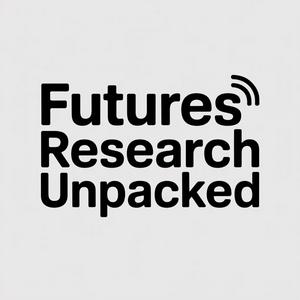#18 - Avoiding Nightmare Forests: Insights From a Co‐Creative Workshop
Join us for an insightful discussion as we unpack the research paper "Avoiding Nightmare Forests: Insights From a Co‐Creative Workshop". This episode explores the critical challenges facing Nordic forests, including climate change, biodiversity loss, and the balance required for a sustainable forest-based bioeconomy.We delve into a unique methodology: a co-creative workshop using a backcasting approach where research scholars were tasked with imagining undesirable, "nightmarish" future scenarios for Nordic forests. The goal was to identify what futures to avoid and then develop strategies to counteract them.Discover the key fears expressed by participants, such as:An adverse intensive forestry scenario leading to loss of biodiversity, no timber supply, and increased pressure from environmentalists putting all forests under protection.Scenarios of damaged forests and landscapes, invasive species and diseases, and the mass extinction of forest-dependent species.Crucially, the episode highlights the workshop's key findings, revealing that despite these fears, participants largely agreed on the importance of multifunctionality and the delivery of multiple ecosystem services as vital for the future sustainability of Nordic forests. We'll discuss the risk-mitigation strategies proposed by the scholars, which include:Adopting hybrid forest management approaches to preserve high-value biodiversity.Implementing precautionary measures in forestry decisions.Prohibiting practices like monocultures, clear-cutting, and peat mining.Promoting diverse tree species composition and continuous cover forest management.Emphasizing active engagement in governance through deliberative and participatory decision-making processes.Tune in to learn how imagining a "nightmare" future can be a powerful tool for creating a shared vision and identifying concrete actions to steer Nordic forests towards a more resilient and sustainable path.Ref:Nebasifu, A., Ekström, H., Iliev, B., Pihlainen, S., Linser, S., Polo‐Villanueva, F. D., Viljanen, A., Charlier, M., Rahman, Md. R., Niedzialkowski, K., Kuhlman, J., Assmuth, A., Garfield, D., D’Amato, D., & Droste, N. (2025). Avoiding Nightmare Forests: Insights From a Co‐Creative Workshop. FUTURES & FORESIGHT SCIENCE, 7(2), e70010. https://doi.org/10.1002/ffo2.70010
